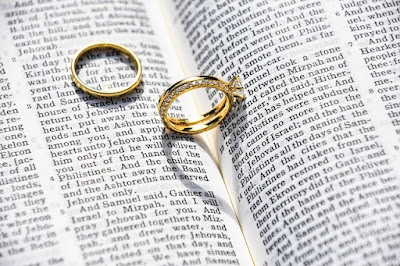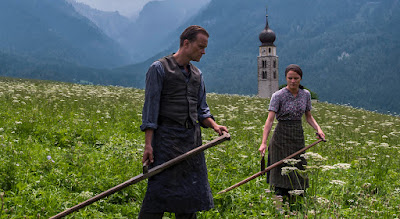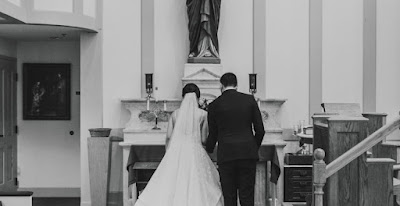Digging around the archives from one of my old blogs, I found this entry I wrote from Bangkok in 2007. Thankful to my guardian angel this sketchy situation didn't go south. I share it here for story-telling and entertainment purposes only. Enjoy your Saturday, and I hope to write more after returning from retreat next week.
-------------------
While shopping in Chinatown one afternoon I bumped into a Filipino man on the street who was very excited to meet an American. He introduced himself as Nicky and said he was living with his brother, who owned an apartment in Bangkok, while he was stationed in Thailand. He said his daughter was with him also. When he asked where I was from and I said Philadelphia, he was very excited--his daughter had just finished nursing school and was getting ready to go the United States to work in a hospital there, though he couldn't remember which one.
We went across the street and he bought me a drink. He asked me questions about Philadelphia and how much I paid for my apartment and would I be willing to meet with her so she could ask me questions. I said I would, but it would have to be this afternoon because I fly out the next morning. So we took a cab to another part of the city. "It is no coincidence that we met," he assured me.
His brother's apartment was in a nice section of the city on the outskirts of Chinatown. When we arrived a beautiful young Thai servant girl opened the door for us. Nicky told the servant girl to get me ice water and coffee, and he invited me to take a seat on the leather couch. By Thai standards, the apartment was somewhat luxurious, with polished wooden floors, bi-level with a driveway, and, of course, a servent girl.
Nicky yelled to his brother upstairs. "He is very funny," he assured me. He shook my hand warmly, introducing himself as Milo, and offered me a cigarette. He said that I would have to forgive him, but his wife had just gone into labor today. Nicky's daughter and Milo's son were at the hospital with her, though Nicky assured me they would be back soon.
In the meantime, Milo talked about his work at the "shipyard." At first I thought he worked for the Navy like his brother, but then it became clearer that he actually worked in a casino on a cruise ship (he had a picture of the ship hanging on the wall). He asked me if I had ever been to Las Vegas. "A lot of money in casinos. I get you a discount."
I wasn't following him, since at one point he was talking about discounted vacation packages or something he could give to "VIP's." He was eager to show me what he did for a living, and suggested we play cards while waiting for his niece to return. We went upstairs to a room with a table and Milo invited me to sit. He started to explain to me how the business worked by drawing a map of the casino floor.
"This," he explained by drawing a series of slashes, "is where the regular players play. But because you are with me, you do not play here. You play in V-I-P section. In VIP section, you play banker, just you." He drew a smaller square to represent the VIP room with a small opening for a door. "I have a guy watching the door, so no one come in, since it VIP only."
--------------------------BANKER---------
| |
| DEALER
| |
| | PLAYER |
|__________________________|
"But, you must understand, I can only give you twenty-five percent, since you are my guest. Seventy-five percent is for my 'company.' You understand?" I didn't quite understand. But I thought I'd take that cigarette after all, because it was starting to feel a little Tony Soprano up here. I nodded.
"So, you know how to play this game?" I thought he was talking about poker but it turns out he was referring to blackjack. When I figured it out, I said 'yes,' since I did.
"Okay," he said, pointing to the map of the casino floor. "When you play VIP, there are rules. But Player has no rules; only Banker has rules. You the Player. You understand?" I understood.
He turned over the map and began to write. "For Banker, if cards 12, 13, 14, 15, or 16, they must draw. If 17, 18, 19, 20, they cannot draw. You understand?" Okay, yes, I think so. We practiced a few hands--some I won, some I lost. Milo said this was playing 'chance'--you might win, you might not win, but you don't know.
There were other things too: Banker was always dealt one card up; Player's down. United States rules face cards all value 10. Etc. Milo stubbed out his cigarette and yelled to Nicky to bring up his coffee. He then went over to a drawer and took out a set of chips.
"There are two kinds of betting for you," he explained: "winning-hand bet, and losing-hand bet. Winning hand bet you bet when you know you are going to win. Losing hand bet you bet when you know the other person is going to lose." The emphasis here was on the word know. He leaned in and asked me straight-faced: "Remember, you are playing with my money--do you want to play a game of chance, or do you want to play a game of skill?" Ummm...
"Skill," I said. A big smile broke on his face and he extended his hand. "Very good. Now, let me show you how to play a game of skill."
By this point I had a pretty good idea of what was going on but was to deep in to get out of it easily. I was starting to feel the need to take a shower; despite the sparkling floors and lush decor, things were beginning to feel grimy, like the soot settling over towns like Pittsburgh as a result of booming industrialization. But I continued to play along.
"If you want to know what card I have, how you think to get it from me?" Milo asks. Umm...
"Blinking?"
He reacts as if it was a mistranslation, even though he was sure of what I said. "No," he said. "And you do not pull your ear like in football coach." Got it.
"You see my fingers?" He started to count off from his pinky: "2,2,2,2...and thumb is 1. My whole fist is 10." So, if I have this many fingers on table," placing four fingers, "how many is that?" Umm...
"Eight."
Again, a pleased smile and warm handshake. In a naive way it did kind of make me feel proud, like I could be the next Blackjack Kid of the Thai Shark circuit.
I was learning to cheat. It was innocent enough to learn, I suppose. The more he spoke about it, the more curious I was. But like all the bastard tuk-tuk drivers and hawkers on the street, I started to wonder what lies beneath the surface of the game.
"Now you look," he said, while picking up the deck to deal. "What card I show you?"
I must have missed it, because I didn't know what he was talking about. He looked disappointed. He picked up the deck to deal again, this time poking the top card out a half inch and flashing it with a quick snap of the wrist.
"Six."
"Very good," he said. At that point his phone rang. It was an English speaking man whom Milo seemed to be familiar with, asking if he could come by to pick up his "pass."
"That was Mr. ____," Milo told me, showing me the personalized VIP invitation card with the man's name on it. "He is already rich. But he come still because as I tell you, you can make very much money as my guest at the casino--V.I.P."
I was getting tired of these shenanigans. It was becoming more and more apparent that there might not be any daughter traveling to America, no wife in labor. This guy had already wasted enough of my last afternoon in Thailand.
"Now, when Mr. ____ comes, we will play a game. Nicky will play Mr. ___; you just watch." It was like when Christopher was becoming a made-man in the Sopranos. Except that I didn't want to be made into anything--especially a professional sheister.
Despite Milo's sharp pitch and confident persona, there was a crack in his front just big enough to reveal an inner poverty, despite his polished floors and servant girl--it wavered behind his eyes. I'd never met a tax collector before, but I imagined if St. Matthew came back to life, this is what he would be like. Not lust, not pride--the love of money was the nail that needed to be let fall to the floor in order to be free. I imagine Jesus just looked at him, and that was enough.
"No, I think I'm going to get going, thank you," I told him.
"No, no, you just watch," he assured me.
"No," I said, "I'm going to go."
He could not understand how I could turn down something that promised so much for so little. "Why you don't want to stay?" he asked.
I looked him in the eyes, confident for the first time in our interaction. "Because I don't want to."
His eyes lowered to the table, but he made a second attempt to persuade me. I responded the same.
The tables had turned a bit and I found myself with some power I didn't really care to have when he saw I meant what I said, and why I was saying it. In a apologetic, but groveling kind of way he asked me not to tell anyone of his 'top secret' operation, since he could lose his job. I assured him I had no interest in doing so, and we went downstairs.
I asked Nicky to call me a cab, which he did. An awkward few minutes ensued while waiting. To add hurt to insult, they asked if I could help them with some money for blood, since Milo's wife was having a C-section at a private hospital. "Lots of money." Money. He asked for 1,000baht. I thought about the beggars with no legs I passed in the street asking for pennies. Disgusted, I gave them 160B and left.
On the ride back to Bangalampoo I stared out the window at the golden bridge over the river, the saangthews choking on the street and ferry boats on the shore, Bangkok in the evening and a settling sadness. I felt like something had been taken from me unfairly. But I also felt like I should have stood up taller, said something more. In the reflection of the window, I stared at my own eyes and saw Milo's eyes looking back, from the outside.























